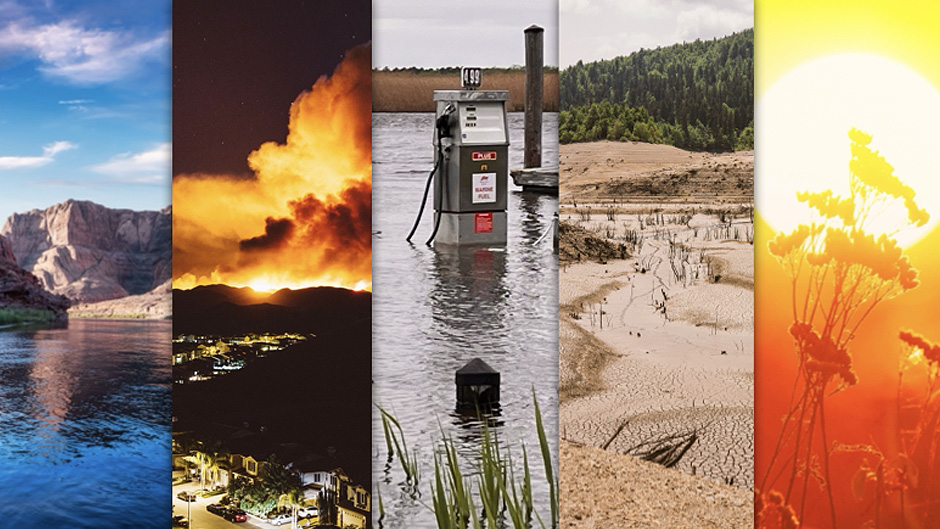Researchers at the University of Miami Rosenstiel School of Marine, Atmospheric, and Earth Science were recently awarded $2.8 million of a $5.8 million grant from the National Oceanic and Atmospheric Administration (NOAA) Climate Program Office to support a groundbreaking four-year project aimed at developing best practices for decision-ready climate projection information. This work will address increased demand by public and private sectors for reliable, long-term extreme weather climate information.
This initiative, led by the Rosenstiel School and including partners from the National Center for Atmospheric Research, Colorado State University, and Florida International University, will engage a wide array of stakeholders across five key themes: western water resources, heat waves, coastal flood risk, wildfire risk, and extreme wind events. It aims to provide access to crucial datasets and analysis procedures while promoting education for the next generation of climate projection translators.
"This is a challenging research project that brings a large team of scientists together focused on developing climate change projections of extreme heat, rainfall, flooding, fire risk, and other environmental hazards for the mid-century and beyond that can be used to support local adaptation and resilience planning by governmental organizations, businesses, and individuals,” said the project’s principal investigator Ben Kirtman, the William R. Middelthon III Endowed Chair of Earth Sciences at the Rosenstiel School. Kirtman is also the director of the University’s NOAA Cooperative Institute for Marine and Atmospheric Studies and the deputy director of the Frost Institute for Data Science and Computing.
Climate change is already affecting communities across the U.S., with impacts expected to intensify in the coming decades. Mid-to-long-range forecasts on coastal inundation, extreme heat, flooding, and drought are crucial for infrastructure planning and anticipating climate effects. Demand for this information is rising among governmental and private entities, yet it is often met through disjointed researcher-stakeholder relationships or generic online graphics that fail to address specific needs.
The project, titled “Developing Decadal Climate Projection Services Through Stakeholder Guidance and Foundational Science,” will develop the scientific understanding to underpin authoritative climate projection services. The team led by Kirtman will conduct the research necessary to support reliable and scientifically robust climate projection services, ensuring that approaches are state-of-the-art, thoroughly and transparently documented, and developed in collaboration with stakeholders.
Project updates and results will be communicated to a broad audience via a website, blogs, and interaction with NOAA’s climate.gov.

